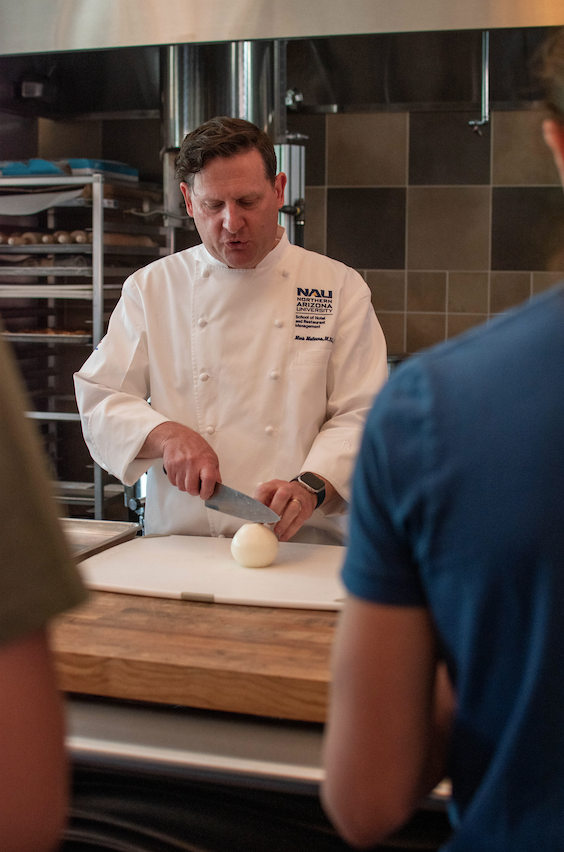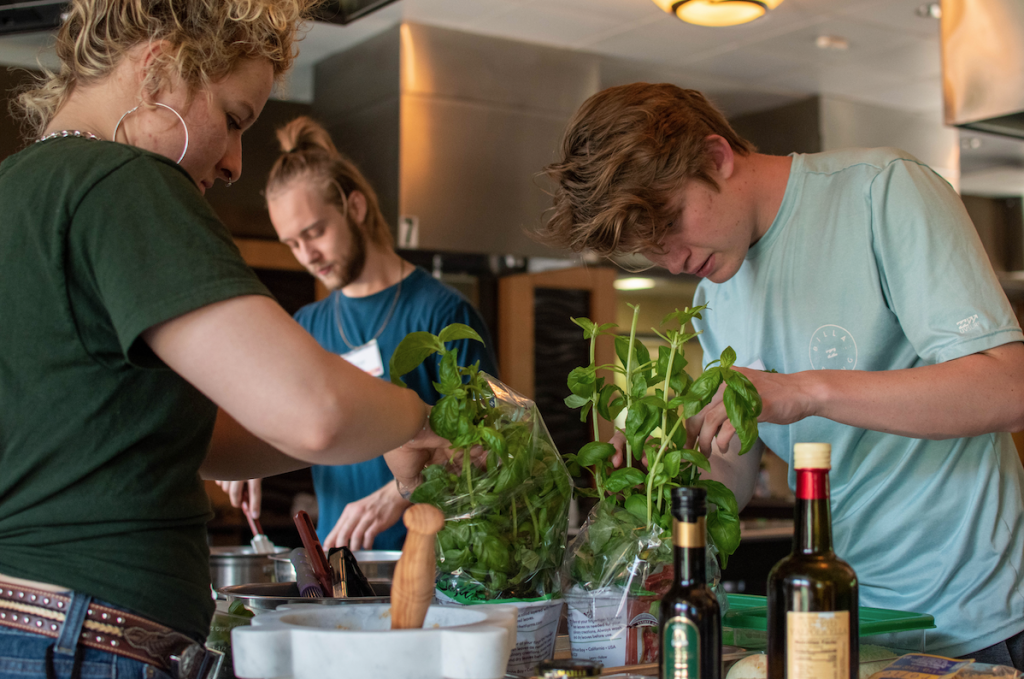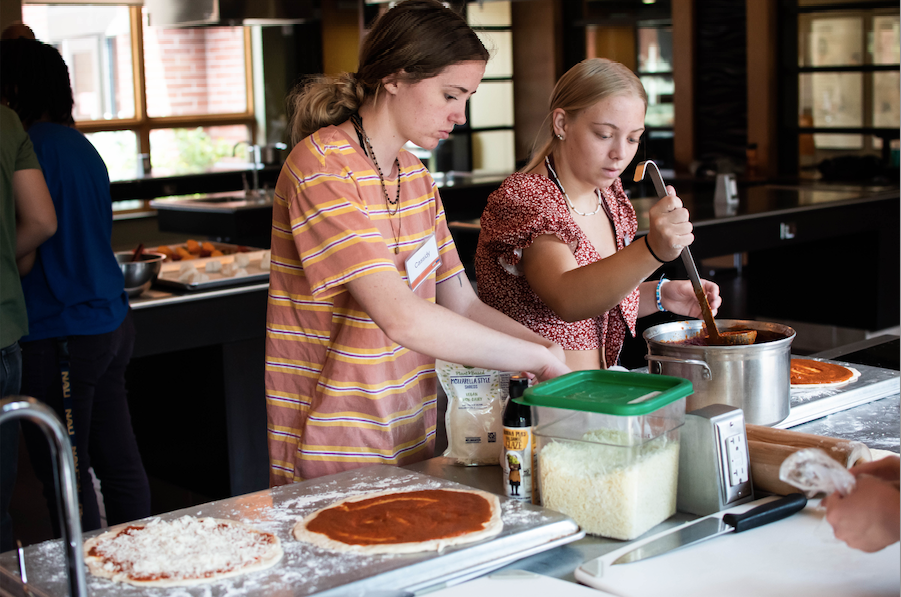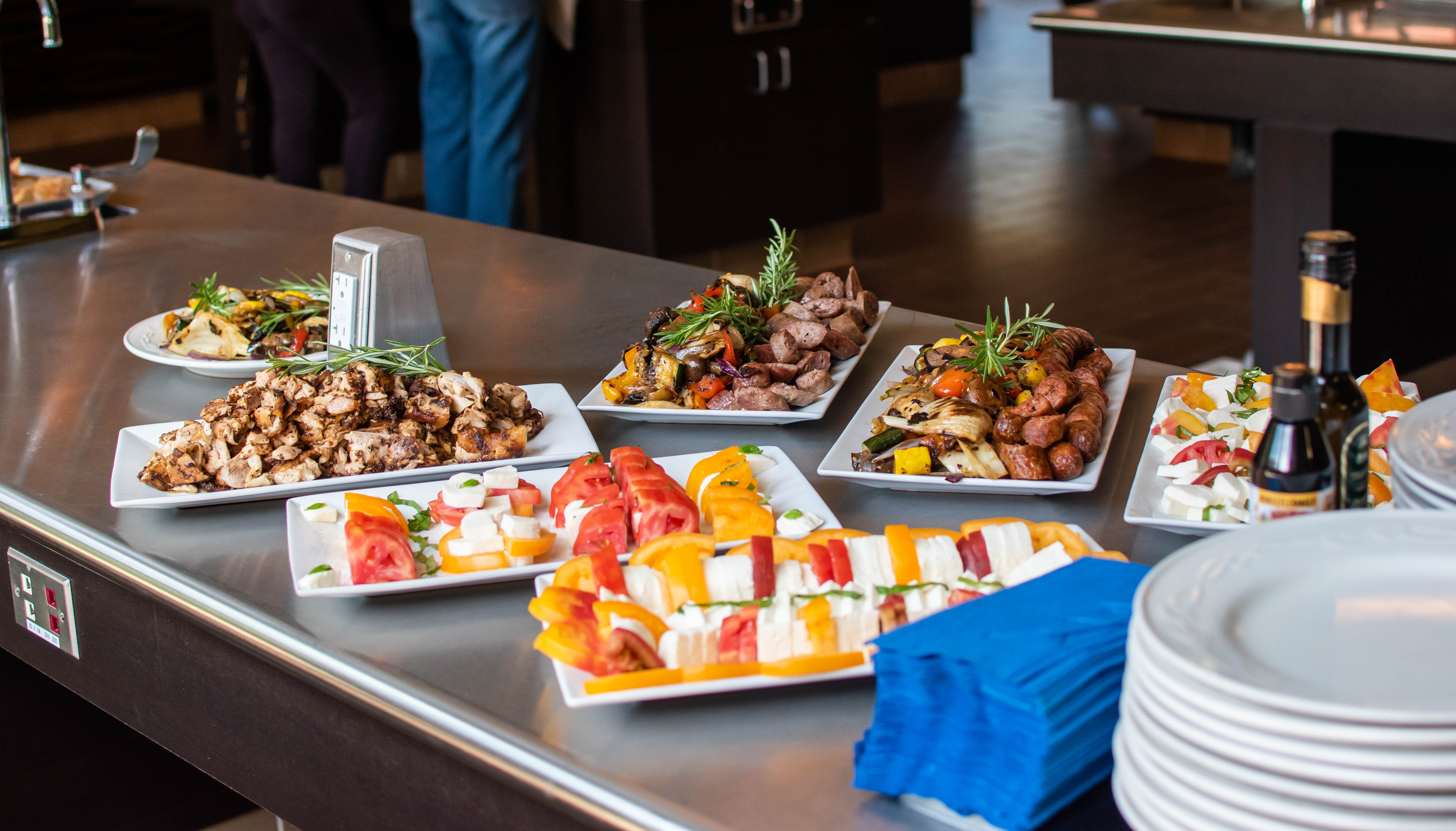
It is chef Mark Molinaro’s mission to make sure this doesn’t happen for the 18 rising sophomores preparing themselves (and their tastebuds) for a semester in Italy, fully funded by the Dorrance Scholarship. The students teamed up with Molinaro in the School of Hotel Restaurant Management to learn about the gastronomy of Italy and practice some basic cooking skills to ensure they can take full advantage of the unique Italian cuisine.
“Studying abroad is an enormous investment on many levels including financial, emotional and psychological, but the payoff, in my opinion, is worth it,” Molinaro said. The cooking class was meant to engage students on a few of these levels, so they felt adequately prepared for their time abroad.
The Dorrance Scholarship is a need-based award that provides funding to students for all four years of college, including the option to study abroad. The goal for the foundation is to instill college-going traditions in future generations of Arizona families.
In addition to covering the cost of tuition, housing, meals and the study-abroad experience, the scholarship also gives students a food stipend, allowing them to go to the local markets and interact with local purveyors to buy fresh meats, cheeses, fruits and other groceries. Molinaro wanted to make sure that students had a basic toolkit of techniques they can replicate while in Italy, like teaching knife skills, seasoning, pairing and fat-acid balance.
Dorrance Scholar Anaya Henderson, a sophomore studying parks and recreation management, is one of the students preparing for the semester in Orvieto, a small town situated halfway between Rome and Florence.
“Over the last few weeks, the Dorrance Scholarship has been preparing us for the culture change of studying abroad,” Henderson said. “I am anxious about the change in environment, but I feel more prepared after receiving exposure to Italian workshops, first-hand stories and intercultural development.”
Though Henderson cooks for herself at home, she was not familiar with Chef’s key lecture/teaching/lesson—that food is for tasting, not just for eating. She not only learned how to prepare a traditional margherita pizza, but also how food is appreciated in Italian culture.
Chef also showed the students the types of products they will most likely encounter and how they can be put together to build a baseline and develop confidence to try more.
“Lastly, I gave students some insight into how our bodies work when we appreciate food,” Molinaro said. “We eat first with our eyes. … Then, we smell. When we are cooking, we listen for the sounds the food is making.”
The class was split into four groups, each with their own recipe that contributed to a large feast shared by all the students—pizza, pesto, grilled meat and veggies, focaccia and caprese salads. Once the food was carefully prepared, it was time to dig in, but not without a final lesson from Chef.
“I showed them how to taste their food with gratitude rather than mindlessly consuming it,” he said. “Much like learning how to appreciate an Italian opera, we need to learn a little history, a little background on the composer and the story line to connect with the music. Otherwise, it may just sound uninteresting or even annoying. Education can help give context and meaning to all aspects of life!”

(928) 523-4789 | McKenzie.McLoughlin@nau.edu





